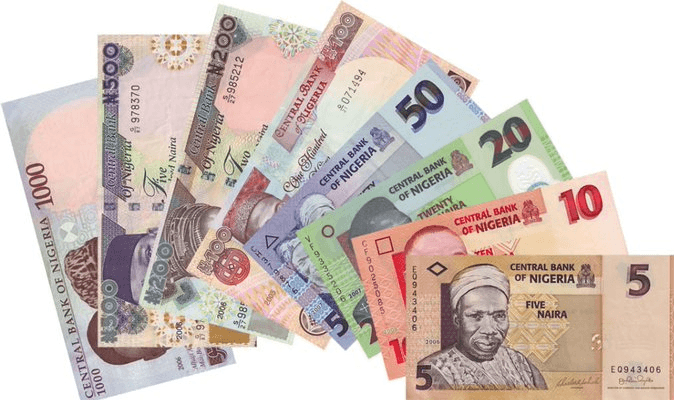Treasury Bills is part of the four types of marketable treasury securities in a given country. The other three are Treasury notes, Treasury bonds and Treasury Inflation Protected Securities (TIPS).
Treasury bills in Nigeria are sold by a single-price auction by the Central Bank of Nigeria on behalf of the Nigeria government. The largest purchasers of these treasury bills in the primary market are the commercial banks and financial institutions. The secondary market is usually where individuals or customers of a specified bank can acquire from. Treasury bills are popularly known as ‘T-Bills’.
According to the Central Bank of Nigeria, Treasury Bills are short-term investment issued at a discount for a tenor ranging from 91 to 364 days, in a way that the income received is the difference between the purchase price and the amount received at maturity or prior to the sale. Are you looking for an investment to make in Nigeria with zero default risk? Why not try out Treasury Bills in Nigeria? Continue reading this article to see what you need to know about Treasury Bills in Nigeria.
Benefits of Treasury Bills in Nigeria
- The treasury bills can be used as collateral for short-term borrowing from banks.
- The Yield or Income on investment is realizable upfront and can be automatically reinvested for a higher income.
- The Yield or Income on investment is competitive with returns on other money market instruments of similar maturities.
- The treasury bills have zero-default risk.
- The Yield or Income on investment is tax-free.
- They are bearer securities and negotiable.
- They could serve as collateral for borrowing, Interest is paid half-yearly.
- It can be traded on the stock exchange.
- Treasury Bills in Nigeria Primary Market
This is the market where new treasury bills are made available for purchase. It is only available from the Central Bank of Nigeria and it requires a huge amount of money to purchase. This is why only big corporate organizations like commercial banks and financial institutions can afford the purchase.
Treasury Bills in Nigeria Secondary Market
This is the market where the new T-bills purchased by large corporations are being traded. Hence, the profit or return on investment from this market is shorter than that of the primary market.
How can I buy Treasury Bills in Nigeria?
It is much easier for the public to buy treasury bills in the secondary market. The people you can buy from are commercial banks, financial institutions, discount houses, stockbrokers e.t.c. Mostly, people use commercial banks as they usually give the best rate. So walk into any commercial bank of your chosen and let them know you want to buy treasury bills.
What is the minimum amount for Treasury Bills in Nigeria
You can buy treasury bills in Nigeria for as low as NGN10,000. It all depends on the institution you are buying it from. While some banks have their minimum purchase set as NGN10,000, other banks have theirs at NGN50,000 and even NGN100,000. But you do know, the bigger your investment, the bigger your return/profit.
How much interest can you earn from a treasury bills in Nigeria
How much interest one can earn from treasury bills varies depending on where you buy it from and what duration. For example, GTBank is selling Treasury Bills for 364 days at 13% interest rate. Access Bank could be selling Treasury Bills for 364 days at 12.5% interest rate. Since it’s a market, every party involved can sell at their desired rates. You’re advised to shop for the best interest rate. Visit a couple of banks, financial institutions, stock brokers, and make sure you are getting one of the best interest rates before investing your money.
Are Treasury Bills in Nigeria worth buying?
Absolutely yes, Treasury bills are worth buying in Nigeria. As you should have read in its benefits listed above, there are so many things you can do with your treasury bills. And it has a zero default risk. You’re making money with literally no risk, that is something you can’t say about most businesses in the country.
Can you lose money on Treasury Bills in Nigeria?
No, you can’t lose money on treasury bills. As long as the Nigeria government still exists, your money is secured. And think about it, the government isn’t going anywhere literally. Your interest can only be affected based on fluctuations or other factors, but your investment capital is never affected.
What is the current treasury bills rate in Nigeria?
Like I’ve said before, there is no stagnant rate for treasury bills in Nigeria. The rate fluctuates based on many factors. You can easily find out the rate by walking into any commercial bank, financial institution or corporate organization that deals with Treasury Bills.
How to calculate Treasury Bills returns in Nigeria
Calculating the returns of Treasury Bills is quite easy. Let use this treasury bills rate as an example. You bought treasury bills from Zenith Banks worth NGN100,000 for 180 days at 11.5% interest rate. You can calculate your returns this way;
11.5 ÷ 100 x 100,000 = 11,500
Since the duration is 180 days and not 360 days which is annually. You divide the 11,500 by 2 which equals 5,750. So your interest in NGN100,000 after 180 days at the rate of 11.5% is NGN5,750.
Disadvantages of Treasury Bills in Nigeria
We talked already about the benefits of Treasury Bills in Nigeria which is also the advantages. Now let see the disadvantages of it.
- T-Bills offer low yield returns. Being a zero default risk investment means there is not so much yield or income you’ll get when investing in Treasury bills.
- Treasury Bills can prevent cash flow for investors who are in need of steady income.
- Treasury Bills have interest rate risk. This means the interest rate might not be attractive to investors, especially when the government are not in need of the public’s money.
